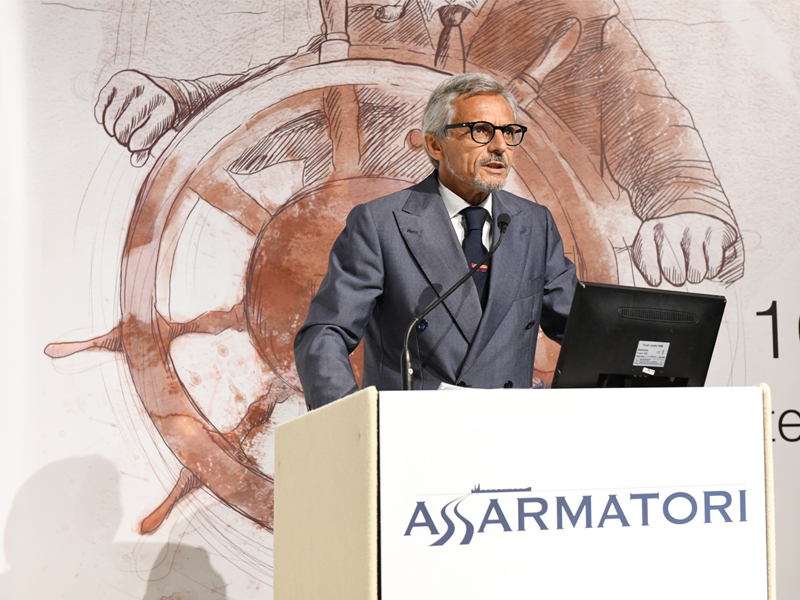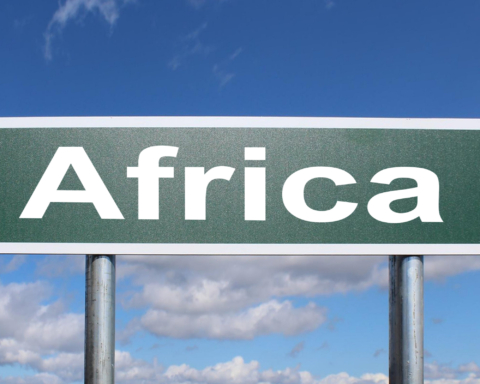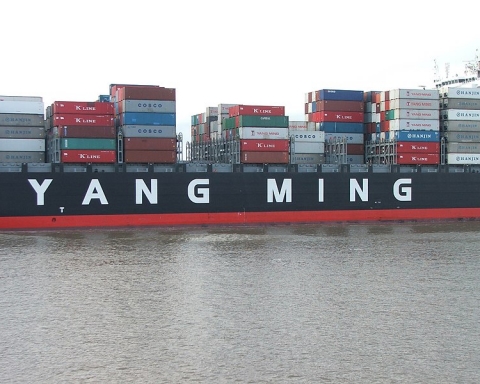The entire maritime economy is worth about 3% of the Italian GDP (Unioncamere data). In terms of added value, we are talking about at least 45 billion euros that give work to more than 880 thousand Italians. Moreover, if we also consider the effect induced on the rest of the economy, given that each euro generated directly by a sector activates two others in the national economy as a whole, the total amount that this sector sets in motion is about 130 billion euros.
To be clear, the latest study carried out by Cassa Depositi e Prestiti, Sace Simest and ANFIA, reveals that the entire Italian automotive industry, the backbone of industrial production, has a turnover of 93 billion euros. Nevertheless, if these are the numbers, why is it common that shipping, ports and Italian logistics are of marginal importance compared to the industrial and productive backbone of the country? Those who support it spread a piece of fake news that is in line with the other fake news on the marginal role of shipping and ports! They are very dangerous sophisms that must be denounced, rejected and returned to sender. However, let’s come to the most urgent themes, first of all, the most strategic ones:
Europe and the sea
According to ASSARMATORI, the greatest failure of the European Union, from the Council to the Commission and on to Parliament itself, was the maritime policy and, in particular, the total absence of a Mediterranean maritime policy.
Let us remember when, many years ago, there was talk of a Community flag; let us remember the rail dumping policies that the European Union allowed and favored to promote the ports of Northern Europe. Let us also remind ourselves of one of the most sensational limits of Europe, namely the lack of a genuine foreign policy, with the long list of damage caused, especially in the Mediterranean, an abandoned sea that the old Commission is handing back to us today with a scenario of geo-political crisis and unprecedented, unresolved problems.
ASSARMATORI not only asks but demands, just when Europe is, once more, asking for sacrifices, that the Union does what it was designed to and built for, thanks also to the major contribution Italy provided; a maritime policy intended to restore peace and protect and increase trade, a policy of revitalization of maritime infrastructure, a policy that affects and leaves its mark on the Mediterranean trade market that is so important for our country.
The Silk Road
Our country has alternated great enthusiasm with equally extensive negative forecasts on this issue. China is one of the main areas of origin and destination of cargo in transit through the Mediterranean. Sooner or later, Italy would have been called upon to do its part.
There are 113 countries involved, in some way, in this project and China has already signed cooperation agreements with more than 70 countries. No one should be surprised if the Chinese government is interested in our logistical system. The doubling of the Suez Canal has brought about and will bring about significant increases in intercontinental traffic, increases that Italy must be able to intercept. In fact, the double-digit growth in traffic in the Canal shows that doubling is gradually changing the world’s maritime transport patterns, especially along the East-West route. The shipping companies are doing their duty by investing heavily in ever-larger ships, in technology and land logistics suitable for the just in time philosophy.
We expect national and European policy to play its part. Ports must be dredged, connected to a modern railway network that transports the latest generation of containers, given that the so-called high-cube are now the majority in the fleets of the companies and many railway lines have tunnels that are not compatible.
China is an opportunity, but I would like to remind our Chinese friends that the rules of the market economy apply here in Europe. Both the national government and the European institutions are therefore exercising their prerogatives to protect the operators already active in this market from those initiatives that do not respect the rules that we know well, starting with those that prohibit State aid or prejudice the interests of the country in the exercise of its strategic infrastructure. It is precisely this context of renewed Chinese interest that should make it clear how important our country can once again be on the world trade routes, as well as on the chessboard of precarious geopolitical balance.
Then our proposal is clear. ASSARMATORI offers to immediately promote a permanent political-industry-shipping panel that indicates the rules of the game in the quadrant of transport and infrastructure. The Government must draw up an efficient and harmonized ‘Italian way’ to the Silk Road.
In a very short space of time, this panel must provide priority indications on functional infrastructure, on the timing of their implementation, but also on trade and tax policies that Italy intends to adopt. An ‘Italian way’ that is based on the rules of the free market and not the result of choices imposed by the geo-politics of foreign powers.
Italy has the economic resources and technical expertise to strengthen and develop its infrastructure system. Other countries do not have the same resources and rely on others to protect their growth. I understand that. But we wouldn’t understand Italy if it followed suit.
Our Conclusions
These are, in a nutshell, the proposals that we are making to our representatives and decision-makers:
– Firstly, the relaunch of Italian maritime labour: the census of seafarers must be concluded and all the measures to increase Italian employment on board must be put in place;
– the protection of our interests at European level: first of all, the Motorways of the Sea must be protected and supported because they are vital for our country more than for others who, up to now, have benefited more from the support of the Union;
– We are also aware that it will be difficult to get an Italian Transport Commissioner, but it must be clear that, in any case, we will have to work to attract the attention and support from the Union that our country deserves for its economic and social importance, especially in the advanced Mediterranean area, where Italy must be at the centre of European transport policies;
– high politics must focus on the maritime sector again with centralized maritime and transport policy planning measures at the core of government action. This can be done also through the instruments of central management and coordination foreseen by port law; I am referring to the Port Network Authority Presidents Conference that is the most important yet unimplemented part of the recent sector reform;
– finally, we ask the Government for the greater and more qualified attention that a sector that constitutes the backbone of the country’s economy deserves; a sector that transports several tens of millions of people by sea ensuring territorial continuity, that guarantees industry with the raw materials and exports on which our economic fabric lives, that broadens the horizons of tourism with millions of cruise passengers in every corner of Italy, that keeps the rich seafaring tradition of our country very highly respected.
Translation by Giles Foster




